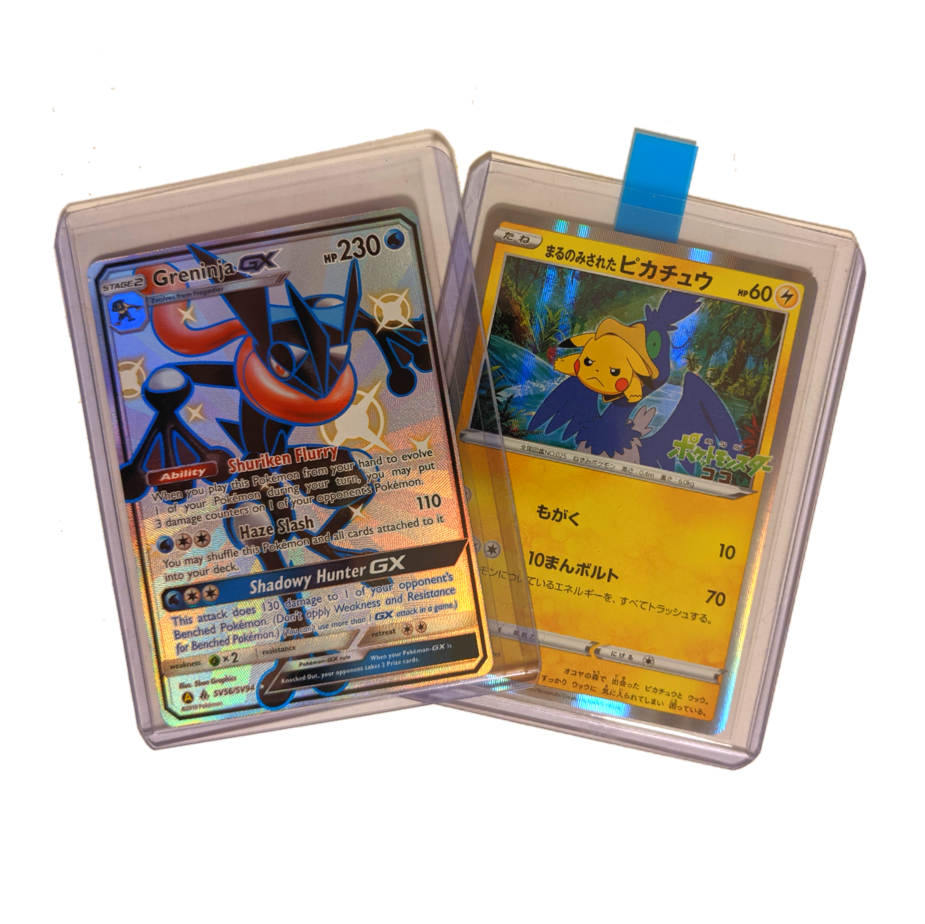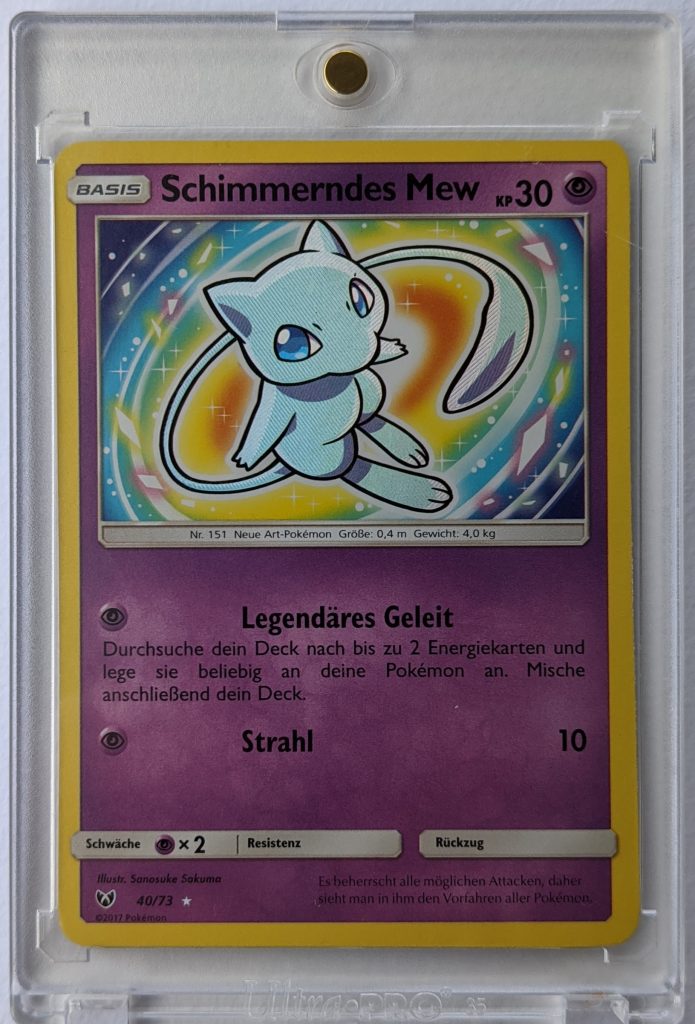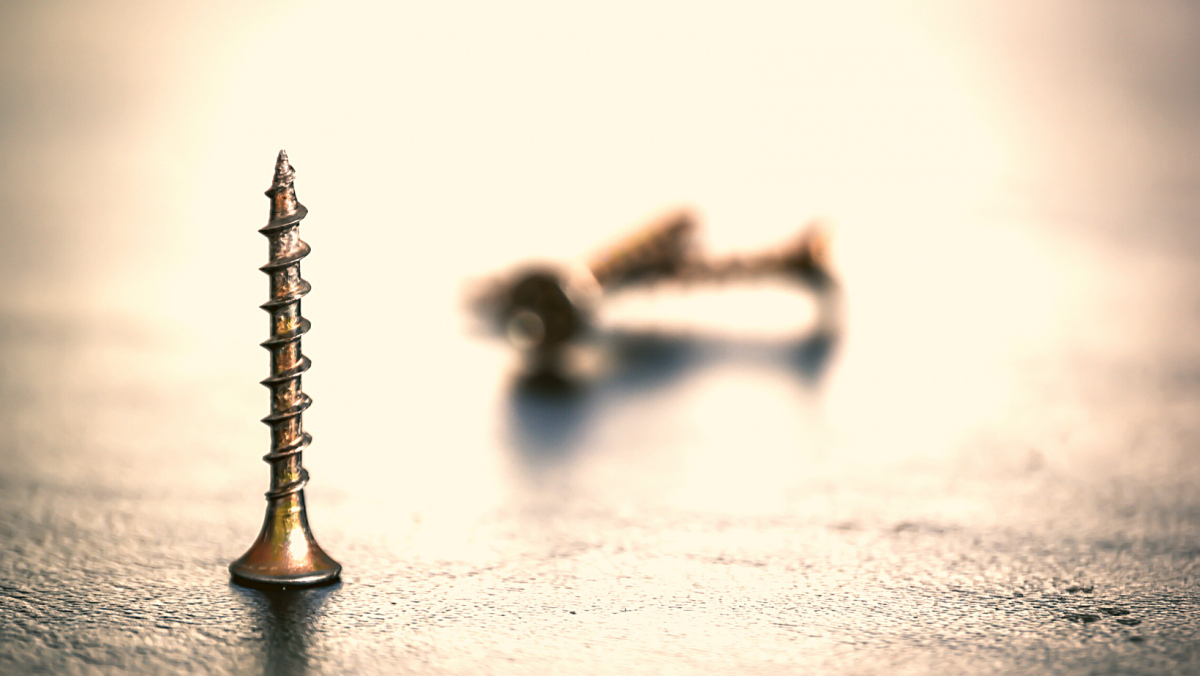Don’t get screwed! Maintaining condition for high value ungraded cards is a challenging task. Especially if you want to store them for a long period. An option are screw down holders for ungraded cards. However, more and more people “get screwed” by using the wrong card holders. But what does “wrong” mean? And how bad for your cards are screw down cases really?
Answer:
In short, don’t use non-recessed screw down case if you want to get your cards graded. By using a non-recessed screw down holder you will alter your card by flattening it over time. Additionally, by applying direct pressure on the card you even risk to give to corners a glossy appearance. As a result, your card will be disqualified from grading and come back as “altered”, meaning without any grade definition. However, recessed screw down holders are pretty much as safe as anything else and provide protection when they are properly used and measured for your cards size thickness.
Do you want to know more about screw- down cases and possible alternatives?
Topics of this blog post:
- What are screw down cases?
- Risks of using a screw down case
- Alternatives for screw down cases to protect your cards
- What is an altered card?
- Conclusion
What are screw down cases?
A screw down holder for collectible cards is a two-piece acrylic material and four-screw down closure with one screw at each corner. Generally, two versions exist:
- Non-recessed screw down holder: “Basic” non-recessed holder. In other words, the two-piece acrylic material is plain and does not provide card cut-outs.
- Recessed screw down holder: The more advanced holder providing recessed areas within the two-piece acrylic material.
Risks of using a screw down case
Each card storage option comes with a risk. Same applies for screw down holders. Certainly, a non-recessed screw down holder is a little bit cheaper than the recessed version. But if you are planning to store and secure your ungraded cards, a few extra bucks are well spent to mitigate card alterations. Especially if you focus on long term value and gradability. So what are the risks for each versions?
Non-recessed screw down holder risks (not recommended!):
- high risk of flattening card over time by applying direct pressure on the card
- moderate to high risk of creating glossy corners over time by applying direct pressure on the card (especially if screwed very tightly)
Recessed screw down holder risks:
- high risk of squishing the card if it is thicker than the case dimensions
- moderate risk of damaging the corners / edges if the case dimensions are oversized
- moderate to low risk of scratching / imprinting the card when each screw gets tightened
To clarify, recessed screw down holders are as safe as anything else to use. Meaning, you can damage a card, whether it is in a a screw down holder, top loader, or magnet holder.
Alternatives for screw down cases to protect your cards
So what else is on the market to store, protect and display ungraded cards?
Toploader
Toploader are a very good alternative to screw down cases. These rigid plastic protectors keep your cards save for storage, display and shipping and are available in various dimensions. Make sure to use a penny sleeve before placing your card into the toploader.

Magnetic holder
Magnetic holders provide a similar solution to store and protect your cards as screw down holders. However, the two-piece acrylic material is designed with slide-in hinges and magnetic closure. As a result, no screwdriver is required anymore. Moreover, magnetic holders are also available in different sizes.

What is an altered card and how does it affect grading?
So if you are in the situation that you store or stored cards in non-recessed screw down holder you will probably ask yourself “what is an altered card?” and “how does each grading company handle it?”.
Generally, an altered card describes a card that has been modified / changed. Examples for modifications are: trimming, recoloring, restoration, cleaning.
But how is each grading company handling the topic?
PSA altered card:
PSA encapsulates authentic altered (AA) cards only. In other words, if your altered card is returned as ungradable (N-5), that determination was made based on the following reasons:
- Altered Stock (N-5) – This includes, but is not limited to characteristics on the card that appear to show some form of alteration such as paper restoration, crease/wrinkle pressing or enhanced gloss.
- Authentic Altered (AA) – This means that while PSA is certifying that the item is genuine, due to the existence of alterations, the item cannot receive a numerical grade. The term altered may mean that the card shows evidence of one or more of the following: trimming, recoloring, restoration, and/or cleaning.
Beckett altered card:
Any card send to Beckett will be encapsulated and receive the blue label “authentic altered” if one of the following applies:
- does not meet minimum grade
- service unavailable
- questionable authenticity
- evidence of color added
- evidence of trimming / shaved
- below measurement tolerance
- possible tampering
CGC altered TCG card:
CGC will not grade any altered card.
However, CGC only accepts “Artist’s Alterations” (altered by the artist of the card) and “Artistic Alterations” (altered by anyone in an artful way). Artistically altered cards are generally encapsulated with the Qualified (Green) Label.
SGC altered card:
SGC will not grade any altered card.
Conclusion
To sum up, please don’t use non-recessed screw down cases as they will damage your card! Always choose an alternative that provides proper protection and recessed areas. Nevertheless, anything used improperly will damage your cards. Key is to get the right size no matter which type of case you are using. Moreover, make sure to place the card right within the holder to protect it from any additional damage when handling.
Do you think screw-down cases are bad for cards? Please let me know what you think about this topic in the comment section below!
Lastly, if you value this article or found it interesting, it would mean a lot to me if you could share it on Social Media!
- Card grading middleman Europe and UK

- BGS grading services, prices, turnaround times and locations

- What does PSA look for when grading?

- Are screw down cases bad for cards?

- CGC card grading cost and turnaround times


